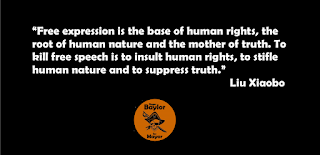Over at Strong Towns, Charles Marohn has something upbeat to say about negativity.
Before we arrive there, let's take a glance at this guy. Some folks in Brainerd, Minnesota say he hasn't ever done anything positive for his hometown.
Marohn (pronounced “mer-OWN”) graduated from Brainerd High School, entered the National Guard on his seventeenth birthday, and went on to study civil engineering at the University of Minnesota. He now lives with his wife, two daughters, and two Samoyeds in East Gull Lake, a small city north of Brainerd. Marohn, forty, likes the Minnesota Twins, reads voraciously, and is a proud Republican. He’s the friendliest guy you’re likely to meet. He’s also a revolutionary who’s trying to upend the suburbs as we know them.
In essence, Marohn eventually turned against the same business-as-usual system that had nurtured and sustained him.
Marohn started questioning the rationale of this kind of system. The government paid the up-front costs of the massive project, but there was no accounting for the significant cost to maintain the system. The town’s property taxes wouldn’t come close to covering those costs, which meant the city would ultimately need to take on more debt. And the system was likely to need replacing well before forty years were up—the duration of the financing he’d procured—which would require an investment of equal or larger size. Marohn began to wonder whether all the work he’d been doing to supposedly help the city grow was really necessary or whether it was going to end up hurting it and, on top of that, whether the roads he was helping to “improve” were designed to accommodate the way people lived or were that way simply because the planning books said that was the way they had to be built.
In co-founding Strong Towns, Marohn sought "to start raising questions about America’s approach to land use and the financial impracticalities suburban sprawl encourages."
And, coming full circle, those benefiting the most from the financial impracticalities sprawl encourages are precisely the ones who can't see the positive nature of Marohn's critique.
Hence the backlash. It's Yogi Berra all over again.
---
Risking Some Tough Talk, by Charles Marohn (Strong Towns)
... When I wrote the Taco John’s piece back in 2012, it fueled a growing backlash here locally in my hometown of Brainerd, Minnesota. I had spent many years being critical of the development choices and capital investment priorities of the cities I knew best, places that were growing themselves into hardship and default. The whole Taco John’s series was, for many at the time, one bridge too many up in flames.
I remember struggling back then with finding the line. The change I saw needing to happen was so radical—so revolutionary and so distant from current practice—that it was hard to not simply beat a constant drum for how messed up things were. There were endless examples, and I had all the math I needed to back up my assertions.
Yet it was very easy for those in power—and those connected to those in power—to dismiss that drumbeat as merely the work of a crank. I was constantly accused of being negative, of having nothing positive to say. This, despite my putting forth very extensive and detailed alternatives, such as the From the Mayor’s Office series. I took the criticism very personally; it was painful.
After all, it was very clear to me, and to a growing movement of people, that our current policies and approaches are bankrupting us, threatening people and places that I love, despite the good intentions of decision-makers. It was clear that a different approach is possible: one that would cost less money and provide more benefits, including a much higher quality of life, at far less risk to our future.
And what was probably most maddening was how clear it was that the greatest obstacle to making the necessary changes was then, and remains today, the comfort level—the lack of tension and hardship—that our communities’ leadership has with the status quo approach.
I used to agonize over the criticism that I’m too negative. I tried to compensate by being overly positive. Part of me bought into the naïve notion that, if I just cheered the positive loudly enough, we’d abandon those destructive practices. Now, I think that’s silly; it will never happen that way.
I think it’s important to celebrate positives, to cheer the victories disproportionately to their size and impact. Let’s do that together, but let’s also connect those actions to the harm we’re still inflicting in other parts of our communities.
You can’t live on a steady diet of junk food and chemical stimulants and have that be okay just because you eat a carrot and take a short walk now and then. We must point that out. It is an either/or, not a situation where you can have both.
You can’t build stroads, subsidize big box stores and accept endless edge development, and have that work out for you just because you threw a block party, painted a mural and put in a temporary bike lane. The former actions are killing you, while the latter are merely first steps in a longer process towards becoming a strong town.











